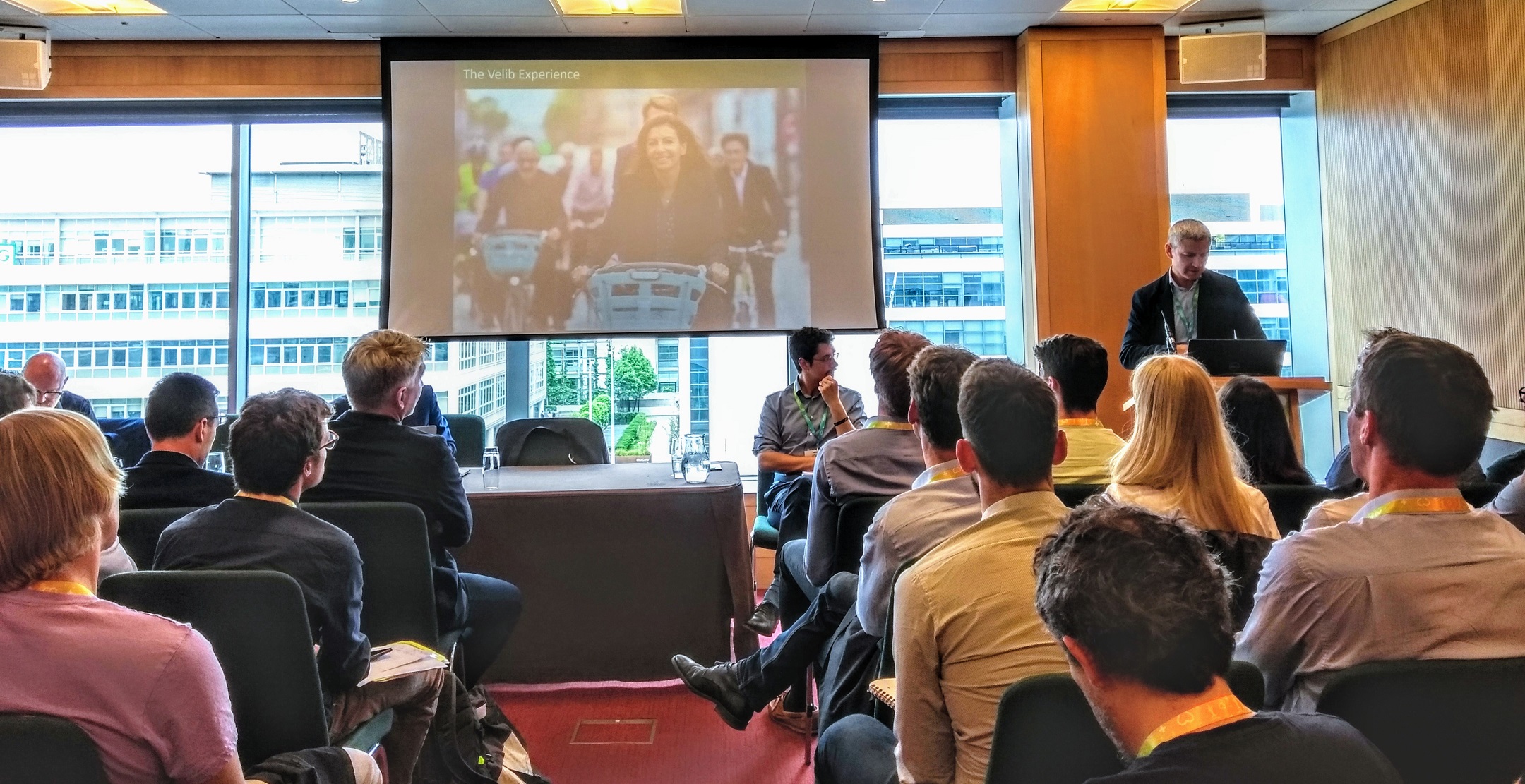
Cities & Regions for Cycling
On the second day of Velo-city 2019, participants had the opportunity to hear some of the best practices shared by the leading cities of Europe during the session dedicated to the ‘Cities & Regions for Cycling’ led by Niccolo Panozzo, Head of Communications at the European Cyclists’ Federation (ECF).
Morten Kabell, CEO of Copenhagenize Design Co. kicked off the session by presenting the Copenhagenize Index 2019, a comprehensive and holistic ranking of the world’s most bicycle-friendly cities.
The project started in 2011 and is now in its fifth iteration. Its main objective is to encourage cities to stay motivated and be more innovative. This year’s index is a result of several months of research, evaluating cities with four main parameters of bicycle-friendliness: streetscape parameters (bicycle infrastructure, bicycle facilities, traffic calming), cultural parameters (gender split, modal share for bicycles, modal share increase, indicators of safety, image of the bicycle, cargo bikes) and ambition parameters (advocacy, politics, bike share, urban planning). This year’s edition includes a lot of success stories, among which are the cities of Seattle with its very successful regulation and control of the ‘private free-floating bike share marketplace”; Lagos with its cargo bike-powered recycling programme; Izmir with the ‘Fancy Women Bike ride’ and Brussels with its identity programme ‘Bike for Brussels”. Mr. Kabell announced that the top 20 cities will be presented during the 3rd day of Velo-city 2019 and underlined that ‘This year the competition for the top spots was extremely tight with a large number of inspirational success stories among the cities. More than that, we are happy to reveal that 4 newcomer cities have made the cut for the first time in the Index’s eight-year history”.
The session was followed by the Vice Mayor of Valencia, Giuseppe Grezzi, with a presentation on Valencia and its transformation throughout the years to become a bicycle-friendly city. He presented the progress made by the city towards creating a better cycling infrastructure. In the last four years, Valencia achieved to consolidate sustainable modes of transportations and increase the number of cycling trips by 21.5%. Another point of his presentation was the creation of the cycling ring in 2017, which allowed better connectivity between the existing cycling network and 4.8 more km of cycling infrastructure. 2018 was the highlight for the city of Valencia with the creation of the Local Cycling Agency, with the objectives of supervising and proposing new cycling infrastructure, pushing for better and more cycling parking and spaces as well as organizing the promotion of cycling habits and activities.
Finally, Christophe Najdovski, the Vice Mayor of the City of Paris in charge of Mobility and Public Space as well as President of ECF, made a presentation about Paris and its evolution into a more bicycle-friendly city. He gave concrete examples of several streets in Paris, displaying the changes that were made to allow increasing bike usage. This included the creation of more bike lanes on busy streets, turning a river bank into a park where people can cycle, an idea that resulted in more than 1000 cyclists registered per hour on a weekday, as well as the ‘Car-Free Sundays’ initiative. He ended the session by presenting the Paris Cycle plan 2015-2020 that has the objective of tripling cycling in Paris by 2020. One of its main priorities is to secure the movement of cyclists and to ensure the right traffic conditions, especially on the most circulated streets of the city by creating bilateral paths or bidirectional cycling facilities.
Regions:
Network/Project Involved:
Topics:
Contact the author
Recent news!
Upcoming events
Contact Us
Avenue des Arts, 7-8
Postal address: Rue de la Charité, 22
1210 Brussels, Belgium









